|
As the spring semester comes to a close and students are heading off to summer jobs and internships, some of our grad students are packing up and heading outdoors to conduct field research projects. From the tropical Amazon Rainforest to the alpine meadows of the Sierras, our students will be getting up close and personal with the organisms and habitats that they study.
This summer, we'd like to bring you along with them! We're starting an email series called "Postcards from the Field." Once our grad students head off to their research stations, they will provide periodic updates throughout the summer on how their research is going, what the experience is like, and the living things they meet along the way!
IB is committed to responsible field work that respects local communities and ecosystems.
|
|
To kick off the series, we'd like to introduce you to our researchers:
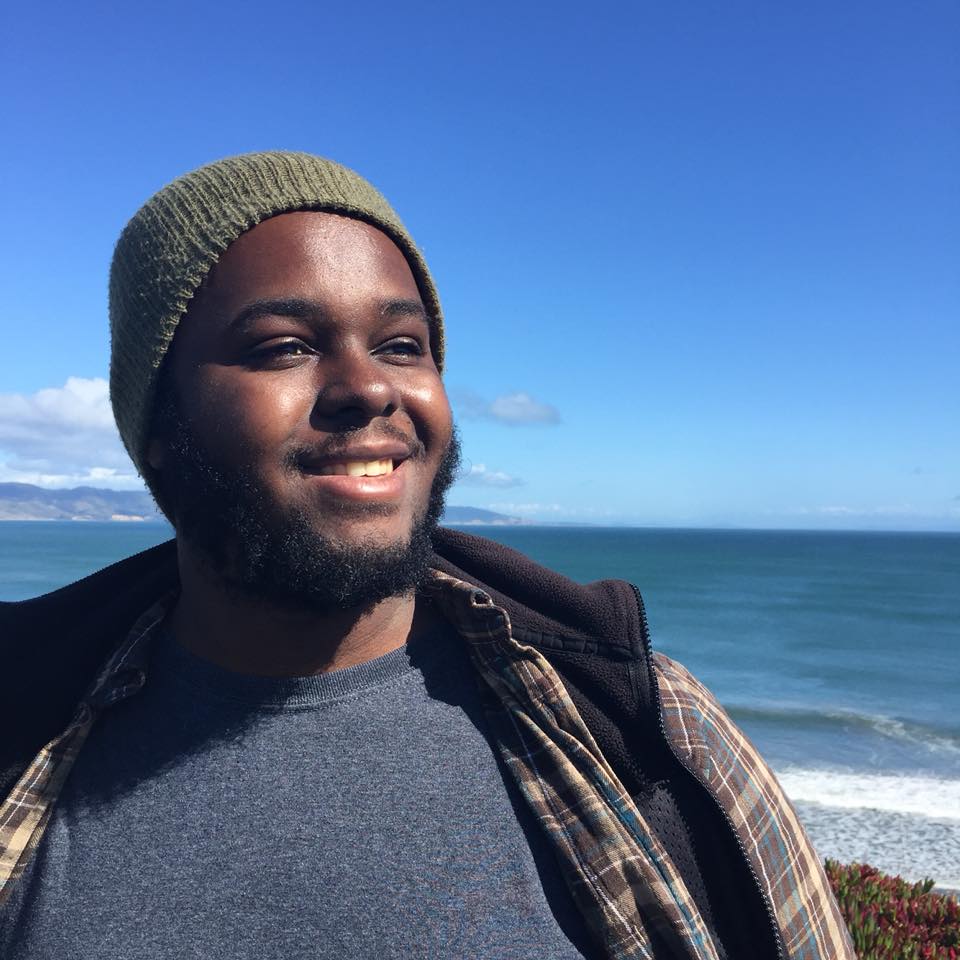 Kwasi Wrensford Kwasi Wrensford
4th year Ph.D. candidate
Research location: Eastern Sierra Nevada Mountains, California
"This summer, I'll be studying the behavior and ecology of two chipmunk species, the lodgepole and the alpine chipmunk. The species coexist in many areas, but over the past century of climate change, the alpine chipmunk's range has shrunk significantly, while the lodgepole's has remained mostly the same. I'm seeking to learn how these ecologically similar species differ in their ability to behaviorally adjust to a rapidly changing climate. Through my work, I hope that I add another small piece to our greater understanding of nature, and that we can use that knowledge to better coexist with all forms of life."
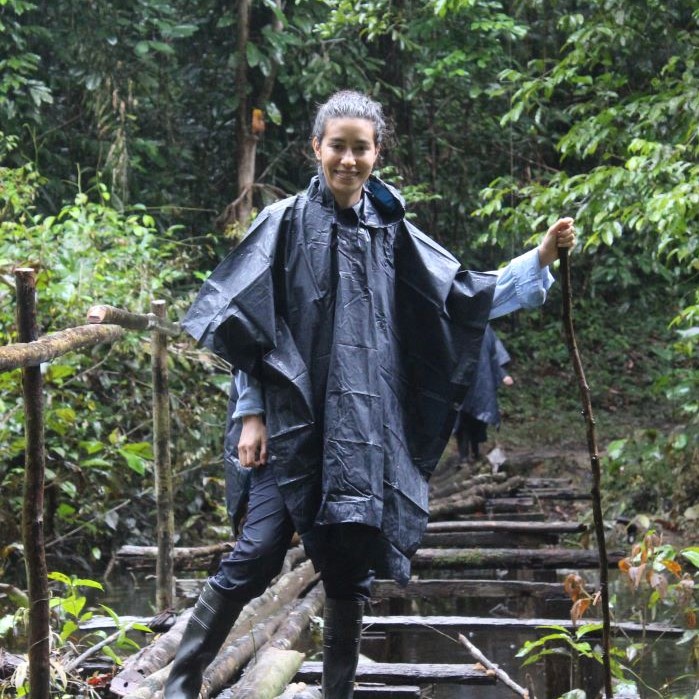 Valeria Ramirez Valeria Ramirez
2nd year Ph.D. candidate
Research location: Leticia, Amazonas, Colombia
"This summer I'm going to the Amazon Rainforest to find neotropical snakes that feed on poisonous dart frogs. These snakes are able to resist several toxic molecules, and it's my job to figure out how. I'll be performing experiments with several different snake species to identify possible mechanisms of toxin resistance. I enjoy conducting field work because I am inspired by observing nature up close, and by working with local communities. They know a lot about their territories and I feel like I am always learning from them."
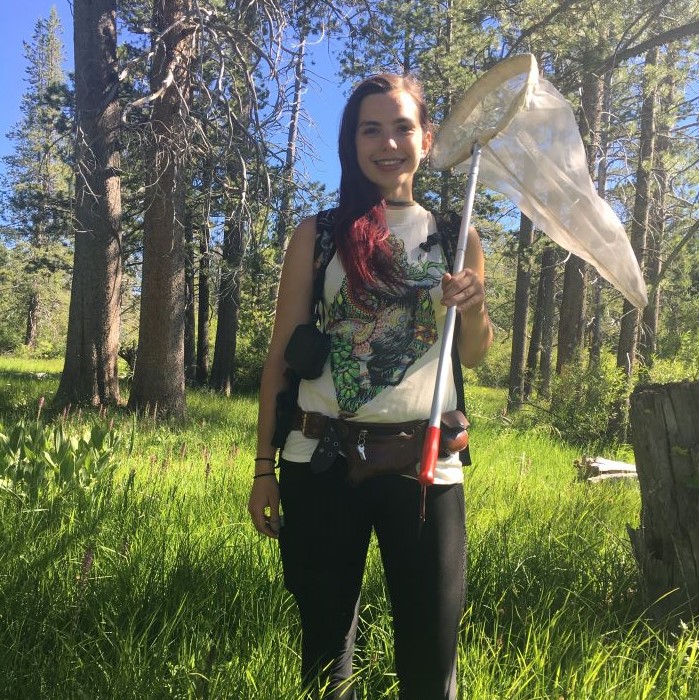 Nina Sokolov Nina Sokolov
3rd year Ph.D. candidate
Research location: Sierra Nevada Mountains, California
"This summer, I will be collecting bees in alpine wildflower meadows to determine if viruses from managed honeybees are spilling over into native wild bees. Flowers act as the disease transmission hotspots, so I'll be looking into how bees' floral preferences play a role in protecting against or facilitating disease spillover. Infectious disease is one of the main reasons for bee population declines, and I'm passionate about understanding virus transmission between bees in hopes of conserving healthy bee populations in the future."
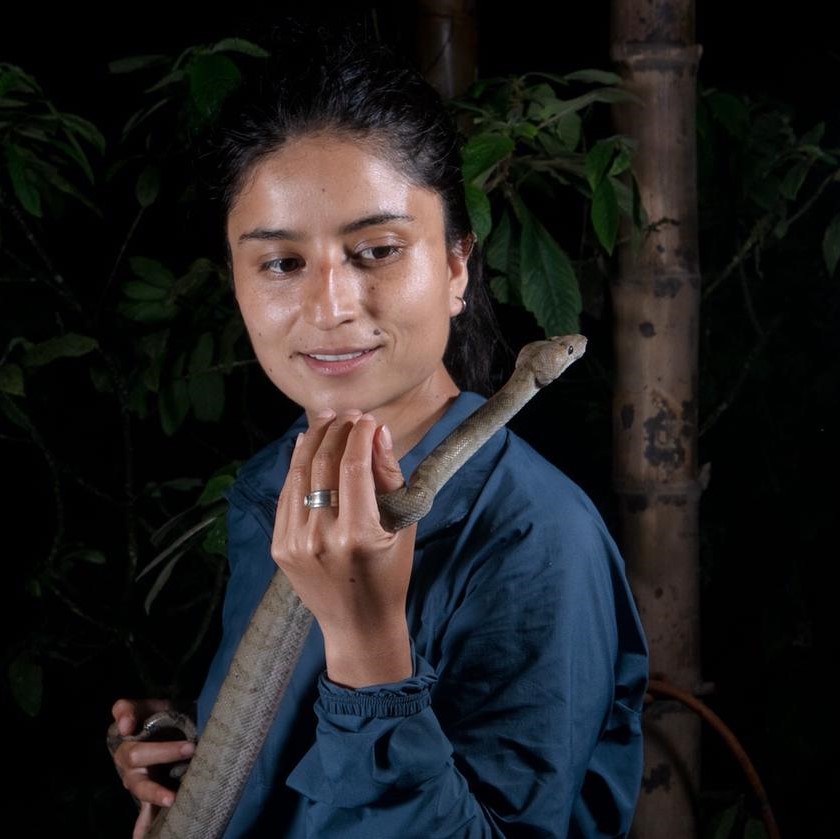 Maria Navarrete Maria Navarrete
1st year Ph.D. student
Research location: Andes Mountains, Ecuador
"This summer I'm travelling to the western slopes and high altitude environments of the Andes to collect skin samples and swabs from the enigmatic, poisonous, and highly endangered harlequin frog. I'll be testing for the presence of a toxin called Tetrodotoxic (TTX), and looking for the symbiotic bacteria that might be producing it. Growing up in Ecuador, a biodiversity hotspot, observation became my primary source for learning. During my childhood, my inherent curiosity for the natural world developed while investigating the choruses of frogs that announced the beginning of every rainy season. This curiosity has stayed with me and drives my passion for biology and my insatiable hunger for deciphering it."
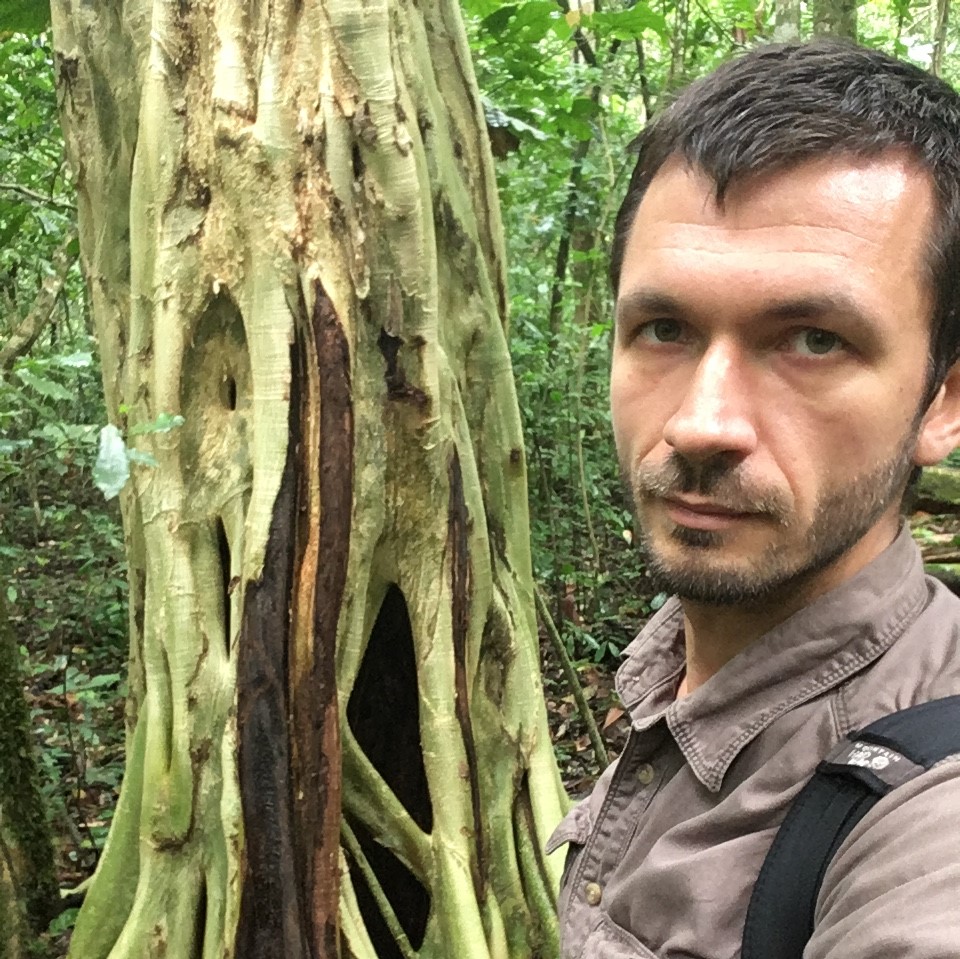 Aleksey Maro Aleksey Maro
4th year Ph.D. candidate
Research Location: Republic of Côte d'Ivoire, West Africa
"The evolutionary ancestors of humans ate primarily fruit. Most ripe fruits are fermented to some degree. My research aims to determine how much ethanol chimpanzees in a West African rainforest consume, and whether they prefer ethanol-rich fruits. This may inform an evolutionary basis for human attraction to alcohol, per the Drunken Monkey Hypothesis. I'm looking forward to the work and consider field research to be a high privilege and tremendous opportunity."
We look forward to bringing you along with us on these exciting and diverse research projects this summer! Stay tuned for on-the-ground updates from our scientists.
|


 Kwasi Wrensford
Kwasi Wrensford Valeria Ramirez
Valeria Ramirez Maria Navarrete
Maria Navarrete